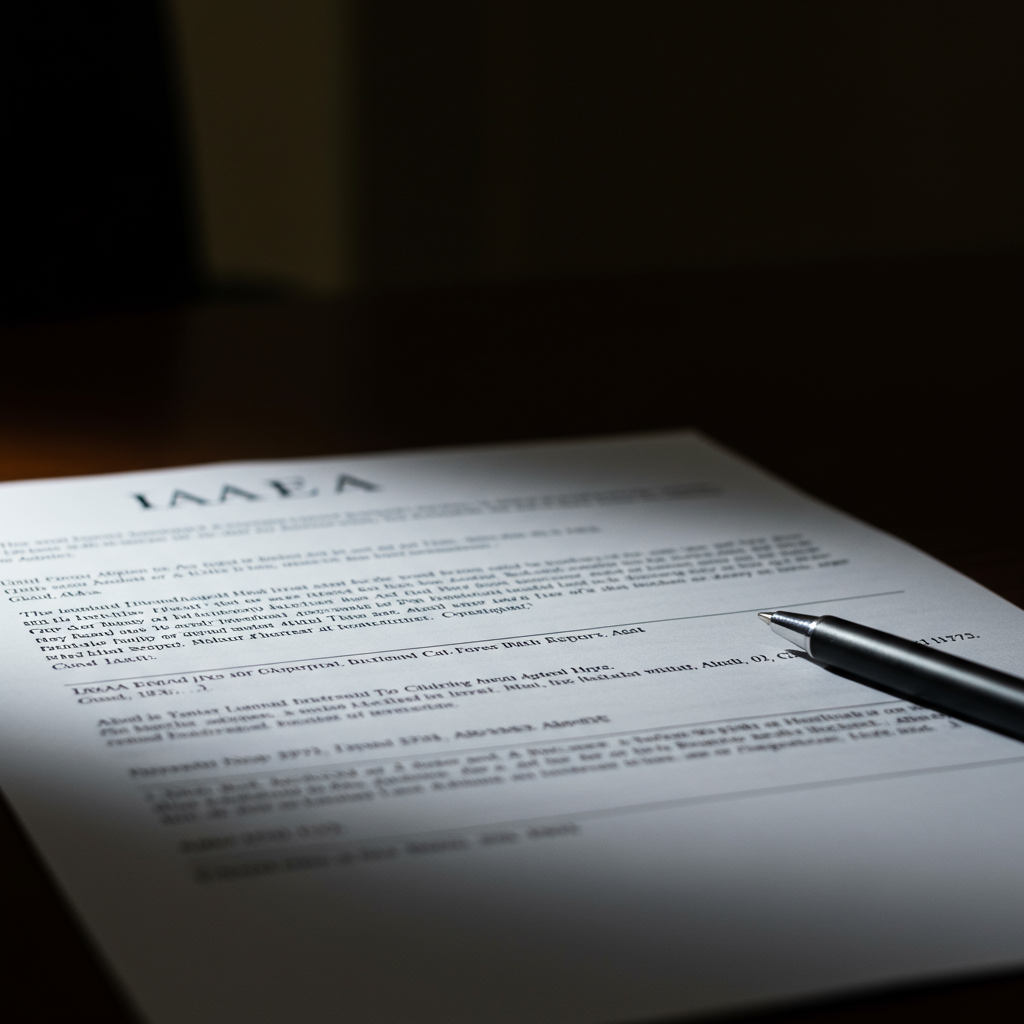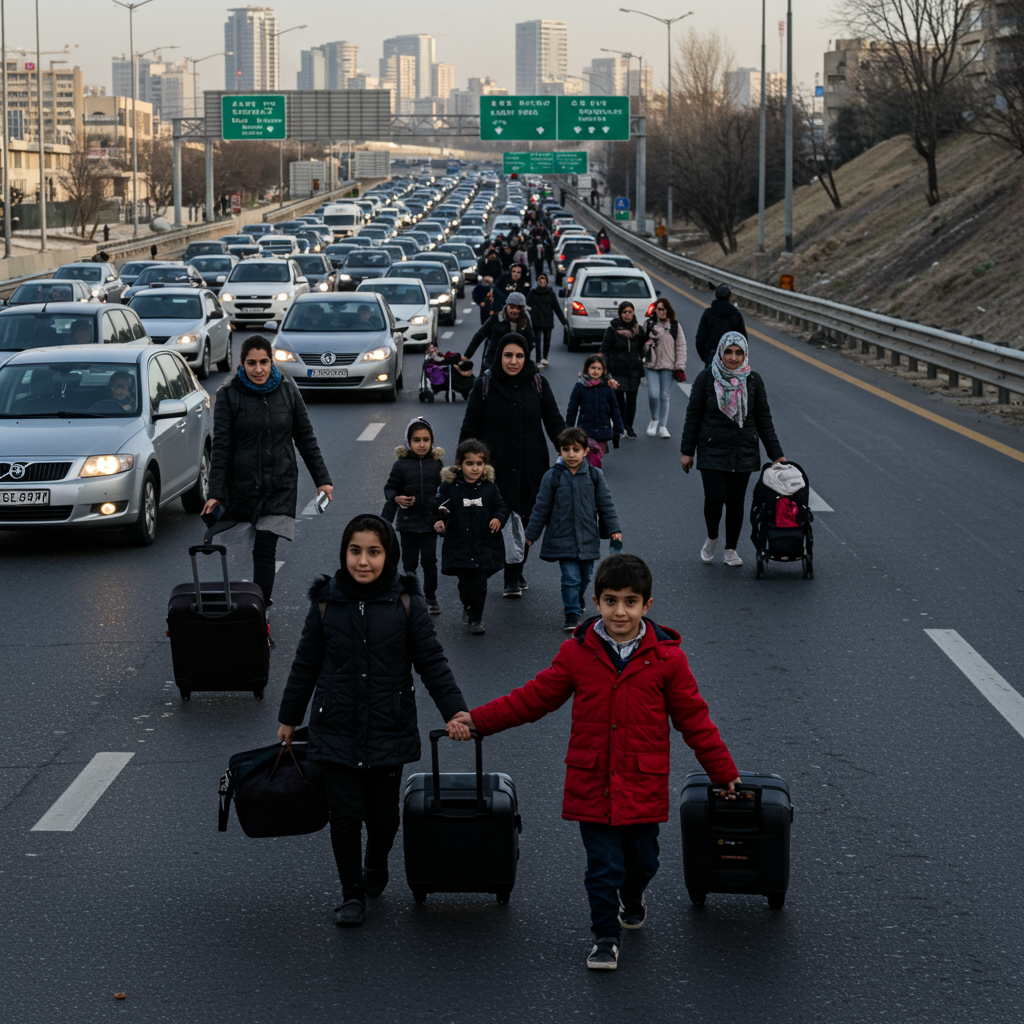The global nuclear watchdog, the International Atomic Energy Agency (IAEA), has delivered a significant finding: for the first time in two decades, Iran has failed to meet its international non-proliferation obligations. This stern assessment comes as Western nations push for greater accountability regarding Tehran’s nuclear activities.
The IAEA’s board of governors recently passed a resolution citing Iran’s “many failures” to provide the full and timely cooperation required under its Safeguards Agreement with the agency. This agreement, part of the Nuclear Non-Proliferation Treaty (NPT), legally mandates Iran to declare all nuclear material and activities and allow verification by IAEA inspectors to ensure everything is exclusively for peaceful use. The resolution explicitly states that Iran’s lack of transparency regarding undeclared nuclear material and activities at multiple locations since 2019 constitutes non-compliance.
Why the Watchdog is Concerned
The resolution follows a recent IAEA report that highlighted Iran’s general lack of cooperation and raised serious concerns over alleged secret activities and the presence of undeclared nuclear material in areas under investigation for years. IAEA inspectors have found uranium traces at sites Iran has not declared as nuclear, leading officials to suspect this could be evidence of a past, potentially secret, weapons program. The IAEA has been seeking clarification on these findings since 2019 with “less than satisfactory” results, according to the agency’s Director General, Rafael Mariano Grossi.
Crucially, the resolution underscores the IAEA’s “inability … to provide assurance that Iran’s nuclear programme is exclusively peaceful.” This failure to verify peaceful intent, due to Iran’s lack of cooperation, raises serious questions that the resolution states are “within the competence of the United Nations Security Council,” given the council’s responsibility for international peace and security.
Potential Fallout and Iran’s Response
The resolution carries the implicit threat of an eventual referral to the UN Security Council, which could lead to further international pressure and potential sanctions against Iran. While the resolution drafted by Western nations – including France, the UK, Germany (the E3), and the United States – does not trigger an immediate referral, it serves as a significant warning and pressure tactic. A senior Western diplomat indicated the move is intended to give Iran a “window to finally comply” with long-standing requests and that the door to diplomacy remains open. However, failure to cooperate could lead to an extraordinary IAEA board meeting and a subsequent resolution pushing for a direct referral to the Security Council later this year.
Iran has reacted strongly to the prospect of the resolution. Prior to its passage, Iran’s foreign minister warned European powers that backing the motion would be a mistake, threatening a strong reaction. Iran’s deputy foreign minister, Kazem Gharibabadi, cautioned against any “politically-motivated action” by certain board members, suggesting it could negatively impact cooperation with the IAEA. Iran has historically responded to previous IAEA board resolutions by further expanding its nuclear program or restricting inspector access.
Context: The Nuclear Deal and Escalating Tensions
This development further complicates stalled talks between Iran and the US aimed at reviving or negotiating a new nuclear agreement. It also risks escalating already high tensions in the Middle East. This is particularly sensitive following recent reports suggesting the Israeli military might be preparing for strikes on Iranian nuclear sites, leading the US to advise some American citizens to leave the region.
Iran maintains its position that its nuclear activities are entirely peaceful and insists it would never seek to develop or acquire nuclear weapons.
The current situation is deeply rooted in the history of the 2015 nuclear agreement, formally known as the Joint Comprehensive Plan of Action (JCPOA). Under the JCPOA, Iran agreed to significantly limit its nuclear activities and grant the IAEA enhanced access for verification in exchange for relief from international sanctions. However, then-US President Donald Trump abandoned the agreement in 2018, arguing it was insufficient, and reimposed US sanctions.
In response to the sanctions, Iran has progressively breached the restrictions outlined in the JCPOA, particularly those related to the production of enriched uranium. This material can be used as fuel for nuclear reactors but, when enriched to high levels, can also be used for nuclear weapons. The latest IAEA report provides stark details: Iran has stockpiled over 408 kilograms (more than 900 pounds) of uranium enriched to a purity of 60%. The report notes this is near weapons grade and would be enough material, if further enriched, to produce nine nuclear bombs.
The finding of non-compliance after two decades marks a critical point, increasing international scrutiny and pressure on Iran as diplomatic efforts continue to falter.



